Extension and Advisory Services (EAS) of Bangladesh should come together to respond to the immediate threats to Bangladesh agriculture from COVID-19, opines Prof. Mohammed Sekender Ali.
CONTEXT
Incidence of COVID-19 was first confirmed in Bangladesh on 8 March 2020. Since then the number of confirmed cases has been increasing. On 18 April 2020, the number of confirmed cases was 2144 and the virus had claimed 84 lives. Of the 64 districts of Bangladesh, more than half are affected by COVID-19. After detecting a few confirmed COVID-19 cases, the Government of Bangladesh closed educational institutions and encouraged all non-essential business to move their activities online. It initially declared a nationwide public holiday until 4 April 2020, which has been subsequently extended to 25 April 2020.
EFFECTS OF COVID-19 ON BANGLADESH AGRICULTURE
Due to this lockdown, all sectors of agriculture (crop, livestock and fisheries) in Bangladesh are facing serious problems. The challenges faced by farmers include:
- Inadequate supply of agricultural inputs like seeds, fertilizers, pesticides, days-old chicks, poultry and fish feed, veterinary medicine and vaccine, etc. due to restricted transport and quarantine measures
- Inadequate pest control in fields due to shortage of pesticides and labour for cultural operations and preventive measures
- Inadequate irrigation facilities due to lack of spare parts of irrigation equipment, technical persons and labour
- Very severe shortage of labour for crop harvesting, sorting, grading, packaging, handling, loading, transporting, unloading, storing, trading, etc. The harvesting of main food grain crop of Bangladesh is going to start in the last week of April and shortage of labour is going to affect Boro rice harvesting.
- Huge wastage and low price of vegetables and fruits due to disconnect with the customer, absence of traders (middle men as collectors, transporters wholesalers, etc.) and vehicles for transport
- Low price of egg, milk and fish in local markets due to reduced customer footfall, traders and vehicles
- Huge wastage of flowers in farmers’ field as there are no customers, traders, collectors, transporters and vehicles
- Huge losses of export quality vegetables, crab and shrimp due to closure of borders and airports
- Reduced income to farmers owing to decreased sale of their products
- Food shortage in agricultural labour households due to lack of work and staying at home
- Shortage of food grain, vegetables, fruits, fish, etc. in big cities due to short supply of agricultural products from fields and local markets.
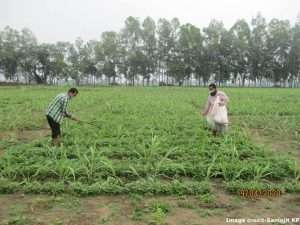
With disruptions in the agricultural supply chain, farmers are getting very low prices for their produce. At the same time, consumers in the big cities are not getting fresh food, vegetables, milk and eggs, etc. and they are paying higher prices for these commodities.
Roy (2020) noted that COVID-19 could affect food demand in various ways. For instance, when reduced income and uncertainty make people spend less, it results in shrinking demand and the sales decline. In the period of lockdown, people visit food markets less often, change their food choices (buying more cereal crops) and consumption, i.e., a rise in eating at home. As food demand is also linked to income, loss of earnings for the poor could impact consumption.
GOVERNMENT INITIATIVES TO OVERCOME THE EFFECTS OF COVID-19 ON AGRICULTURE
Bangladesh government has unveiled some initiatives to overcome the effects of COVID-19 on agricultural sector. Honourable Prime Minister of Bangladesh, Sheikh Hasina, has announced a stimulus package of BDT. 5,000 crore for the farmers to boost agricultural production in the backdrop of the COVID-19 fallout. Government announced that the money from the fund will be disbursed among small and medium farmers of crop, livestock and fisheries sectors at five percent interest. Bangladesh Bank would formulate the refinancing scheme of the amount to be disbursed as working capital in the agriculture sector. Small and medium farmers in rural areas will get loans from the fund. The farmers can use the money to produce vegetables, food grains, flowers, fruits, fish, poultry, dairy, etc. She said there will be an additional allocation of BDT. 9,000 crore as fertilizer subsidy in the next budget and the existing disbursement of loans at four percent interest for producing spices like onions, garlic, ginger and chili, etc. will be continued.
The Government of Bangladesh has allocated another BDT.100 crore to the Ministry of Agriculture to mechanize harvesting of crops. This money will be used as subsidy by farmers to purchase machinery (especially rice harvesters). The government also allocated an amount of BDT. 150 crore for distributing seeds among affected farmers to help in continuing agricultural production.
The Prime Minister has said that agricultural activities will have to be continued to ensure food security. She directed the administration and law enforcement agencies to allow movement of people engaged in crop harvesting and facilitating food and agricultural input supply chain. She has ordered authorities to arrange a weekly haat (makeshift market) in an open field in every area to help farmers sell their produce while maintaining social distancing. During the upcoming Boro (rice) season, the government will procure an extra two lakh tons of paddy compared to the last season to ensure a fair price for farmers.
Prime Minister Sheikh Hasina has been directing authorities to provide food aid to daily wage earners. The Ministry of Disaster Management and Relief reports that food support is being provided to farm labourers and other beneficiaries.
WAYS FORWARD: ROLE OF EXTENSION AND ADVISORY SERVICE (EAS)
With agriculture in serious crisis, EAS providers have to step up their efforts in addressing the impact of COVID-19. Some ways to do this are:
- Extension and Advisory Services (EAS) of Bangladesh should come together to respond to the immediate threats to Bangladesh agriculture caused due to COVID-19
- Organise an online survey among EAS providers to seek specific information on the challenges farmers face in their areas of operation
- the roles they are playing to support farmers in the areas they work
- what additional support farmers need in these areas and
- what additional support EAS needs to respond to these challenges effectively
The Society for Bangladesh Agricultural Extension Network (BAEN) or other EAS providers should take this responsibility.
- Organise a participatory impact assessments exercise to map effects of COVID-19 on people’s food security and livelihoods, derive proactive measures and determine what assistance Bangladesh government requires from development partners such as FAO, IFAD, other donors and development banks
- Strengthen digital advisory services and provide information on output prices, availability of inputs, etc.
- Advocate exemptions for supply of agricultural inputs like fertilizers, pesticides, seeds, poultry and fish feed, days-old chicks, medicine, vaccines, etc. from the shutdown
- Providing low interest credit to farmers’ groups (common interest groups formed by DAE, farmer groups of NGOs) to buy rice harvesters with matching government subsidy so that small and marginal farmers will be able to harvest their Boro rice. They can also earn money by cutting other farmers’ Boro rice as there is scarcity of labour for harvest. Actual prize of a rice harvester is BDT. 29 lakh. A farmer with BDT. 14.5 lakh can purchase the machine if BDT. 14.5 lakh can be provided by the government as subsidy through the Department of Agricultural Extension (DAE). In the current situation, small and medium farmers are not able to purchase the machines.
- Ensure migration of agricultural labour from parts of north Bengal (where there is surplus labour) to Sylhet region during Boro rice harvesting while following lockdown guidelines.
- Organise proper transporting system to (a) transport agricultural input from manufacturing and distribution centres to the farmers through private companies and (b) transport farm produce like food grain, vegetables, fruits, milk, meat, eggs, etc. from farm gate or local market to big cities
- Educate farmers about biosecurity measures such as handwashing, wearing masks, staying home if sick and maintaining social distancing.
 Prof. Dr. Mohammed Sekender Ali is Professor, Department of Agricultural Extension & Information System; Pro-Vice Chancellor, Sher-e-Bangla Agricultural University, Dhaka and Secretary General, Society for Bangladesh Agricultural Extension Network (BAEN) (Email: msa_sau@yahoo.com)
Prof. Dr. Mohammed Sekender Ali is Professor, Department of Agricultural Extension & Information System; Pro-Vice Chancellor, Sher-e-Bangla Agricultural University, Dhaka and Secretary General, Society for Bangladesh Agricultural Extension Network (BAEN) (Email: msa_sau@yahoo.com)

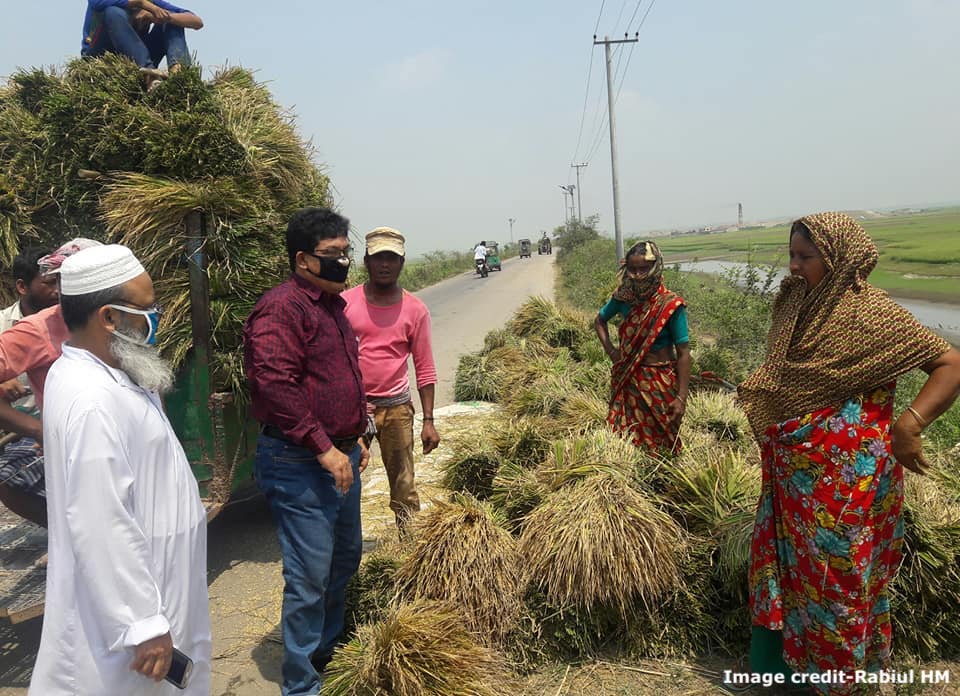
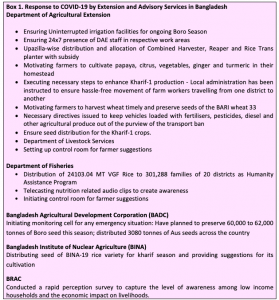 *
*
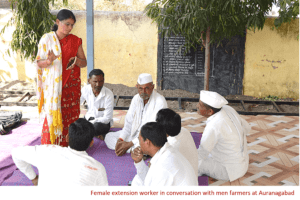
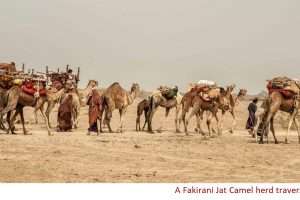
Add Comment